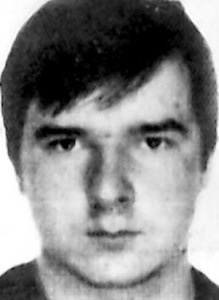
The identity of a former RUC sergeant who fired the shots that killed the unarmed Pearse Jordan 20 years ago will not be revealed at his inquest, a court has ruled.
The former policeman, known only as ‘Mr A’, had been expected to testify at the hearing into the death. But a judge yesterday insisted he could not be identified, saying that naming him would put his life under threat.
The decision was taken even though the man who shot Mr Jordan dead now lives abroad.
The judge also ruled in favour of anonymity and screening for three more RUC men, who were also expected to give evidence at the inquest.
A separate legal bid by the Jordan family to challenge the granting of anonymity to six other serving and retired officers was rejected.
Pearse Jordan (23) was shot dead by the RUC on the Falls Road in west Belfast in November 1992 in an apparent shoot-to-kill incident.
‘Mr A’, who fired the fatal shots, was involved in a specialist “anti-terrorist” RUC unit.
He was promoted to the rank of sergeant and commended three times during 28 years in the British Crown forces.
Now aged 61, he has been retired for more than a decade and has refused to co-operate with the coroner.
Explaining his decision, the judge said: “I consider anonymity a relatively modest derogation in the circumstances and a step which the state is obliged to take to protect their lives.
“I not only quash the decision of the coroner, for the reasons above, in regard to those officers but I substitute the grant of anonymity to them.”
Karen Quinlivan QC, for the Jordans, has said the anonymity rulings were “contrary to the requirement for open justice and contrary to the objective of subjecting those (who use) lethal force to public scrutiny”.
It was also revealed that the long-delayed inquest may face further delays due to PSNI police efforts to obtain secrecy orders, known as Public Interest Immunity (PII) certificates.
Lawyers for the PSNI said there would be “some slippage” over the gag orders but that “in the grand scheme of things, after 20 years, it is not that significant.”
![[Irish Republican News]](https://republican-news.org/graphics/title_gifs/rn.gif)
![[Irish Republican News]](https://republican-news.org/graphics/title_gifs/harp.gif)

